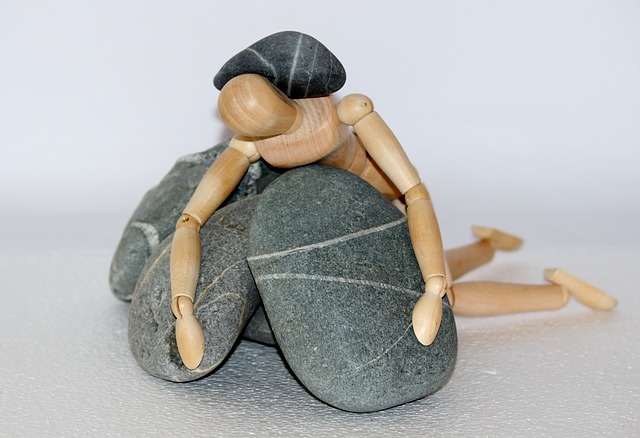After their forty, men, like women a little later, are subject to hormonal disorders which sometimes alter their mood and progressively, their health. With men, the risk of complications (insomnia, loss of desire, prostatitis) is increased, recently, by the presence of numerous xenoestrogens introduced into the industrial diet by way of pesticides. To avoid foundering in andropause, the adoption of a specific and non- restrictive diet will allow you to calmly get over the hill towards a ripe old age without breaking down on the way.
From now on there is no room for doubt: our industrialized environment which produces xenoestrogens (estrogens outside of our bodies), coming from the pollution, is in a large part responsible for the prostate ailments and the pathologies concerning reproduction and sexuality which touch more and more men over forty.
At the same time, recent studies have made evident the dangers of substitutive hormonal treatments. They have also shown the relative inefficiency of synthetic progestogens which raise the hormonal limits. This is not even mentioning their secondary effects, in particular the volume of ejaculation and erectile dysfunction. And if the solution were to be found in natural, biocompatible progesterone? And if it would be enough to turn towards the rule of vegetables to relieve, or heal, the symptoms of andropause with their physical grievances and troubles such as insomnia caused by having to get up frequently during the night and by BPH (benign prostatic hypertrophy)?
The cooked tomato: the number one ally of andropause.
Fruits with a red color such as tomato, watermelon, pink grapefruit, papaya and guava contain a pigment from the terpene family: lycopene. This carotenoid which our body is incapable of fabricating could have the virtues of being preventative for certain cancers, in particular prostate cancer, and inhibiting the growth of cancerous cells. The very serious scientific magazine “J. Natl Cancer Inst” reports that after three weeks of taking 30 mg of lycopene (about 200ml (6.7 fl) of tomato sauce or juice), men with prostate cancer observed a clear reduction of the size and virulence of their tumour. Another study has shown that taking 50mg of lycopene raised the level of a protein, the connexin 43, which inhibits the growth of cancerous cells by forcing them to differentiate and to die. Let us note that at the same time that the lycopene cannot be assimilated by the body except when cooked (especially the tomato) and accompanied with a splash of oil which optimises its absorption.
Squash seeds: anti-inflamatories of the prostate.
The seeds of cucurbitaceous plants and in particular those of squash produce an oil which is highly prized by phytotherapists for its anti-inflammatory properties which work specifically on the prostate. These seeds are also high phytosterols, which will enter into competition with the androgens on the receptor level, thus inhibiting their action on the cells. One can use them just as they are, whole, crushed or ground. Roasted dry- they are already pretty fatty- in a pan, they can be incorporated into a salad with raisins and fresh herbs.
Oats for the libido.
Oats are a general stimulant, especially used for their impact on the quality of the erection. Their action can consist of liberating the testosterone which, with age, can have the tendency of staying imprisoned in the proteins, which, as a result, makes it less available.
Shallots reduce the risks of cancer.
Give flavour and aroma to your cooking without moderation with garlic, onions, shallots, but also with chives and leeks. In effect, according to a study published in 2003, the allicin contained in these seasonings can have the capacity to diminish the risk of prostate cancer. Shallots could even have a protective action superior in this domain than that of garlic…
Raspberries inhibit cancerous cells.
Raspberries, strawberries, blackberries, blackcurrants, pomegranates, nuts and hazelnuts contain a precious phenolic acid, ellagic acid, endowed with a strong cancer preventing quality. But it is only in raspberries that we have been able to demonstrate the bioavailability of this polyphenol. Ellagic acid inhibits the growth of cancer cells in the prostate and can even provoke the apoptosis (naturally programmed death) of the cells. A study cited in the journal “Food chem. Toxicol” reveals that this polyphenol can diminish the incidence of tumours in acting on the initialization phase of the carcinogenesis.
Wheat, soy, sunflower, corn: the seeds of hyperplasia.
The germs of wheat or soy, the edible vegetal oils, such as sunflower oil or corn contain a phytosterol which is precious for the masculine hormonal equilibrium: beta-sitosterol. The effects of this sterol of vegetal origins on the benign hyperplasia of the prostate have been evaluated in numerous studies.
In 1999, based on four randomised, double blind, clinical studies, controlled by placebo and involving 519 men with benign hypertrophy of the prostate, the “British Journal of Urology” reported that beta-sitosterol brought about a notable improvement of urinary problems. Even better: in 2001, the “European Journal of Cancer Prevention” reported that a diet rich in beta-sitosterols inhibits the growth of cancer cells in the prostate.
Vegetal oils for the essential fatty acids.
Unsaturated fatty acids play a very important role in the inflammatory mechanisms of the prostate. According to various studies, they also participate in the reduction of the prostatic volume which accompanies the benign hypertrophy of the prostate. It is, in consequence, indispensable to consume them in vegetal form: olive oil, colza, nuts… but also animal: fatty fish, such as sardines, mackerel, salmon, which constitute an excellent source of omega 3, precursors of anti-inflammatory prostaglandins.
Oleaginous and dry vegetables for the zinc.
One finds zinc in oysters (80mg per 100g), but also in dry vegetables (lentils, beans, dried peas), and in oleaginous (colza, soy, sunflower, hemp, squash with oil and flax) and eggs. Zinc is a great antioxidant. An American study made it possible to note that patients with BHP and with a hardening of the prostate saw their symptoms diminish by 70% thanks to a supplementation of zinc (150mg/ day) during two months.
Brazil nuts and tuna for selenium.
Selenium plays an important role in the integrity of the spermatozoids and it is one of the principal actors in the metabolism of testosterone. Various studies have shown its role against the development of prostate cancer in a supplemented population. Attention, however: at high doses, this oligo-element becomes toxic and can provoke convulsions.
Combined, these specific nutrients of the prostate act in synergy and allow not only to relieve the symptoms of prostatic hyperplasia, but also to hope to limit the growth of cancerous cells in this organ and even to prevent their appearance. This can be done with the condition of giving preference to a cuisine more raw than cooked, with fresh foods; by abandoning meats in favour of wild fatty fish and fowl; and by avoiding foods which accelerate aging such as refined grains rich in iron, white bread, brioche and other pastries or even fast cooked white rice.
Dwarf palm tree and thistle : the anti-aging treasure of men
- Dwarf palm tree.
Distrusted by Americans when it grows on their own soil and was already used by the Indians to help male urinary problems, the dwarf palm tree is used in Germany since the sixties, in the form of the extract lipophile (developed by French scientists), to treat problems of benign hypertrophy of the prostate. Today, the saw palmetto, or sabal is the plant most studied in the United States.
Random controlled tests done and published in 2000 by the journal “Urology” confirmed its ancestral usage to be well founded by showing that the extract of saw palmetto berries act by inhibiting the 5-alpha-reductase, an enzyme which catalyzes the transformation of testosterone into dihydrotestosterone or DHT, a masculine hormone essential for the good functioning of the prostate, but of which an excessive accumulation can be one of the causes of the swelling of the gland.
A simultaneous Italian study noted a 50% decrease on the level of DHT in the prostatic tissue thanks to an administration of 320 mg of saw palmetto during three months. Even better: the dwarf palm, except for some minor stomach troubles, has no undesirable side effects and doesn’t have adverse effects on erectile function, contrary to allopathic remedies (this side effect touches about 8% of patients). And, whereas these remedies take in general three to six months to act and need to be taken for the rest of one’s life- otherwise the symptoms come back, on average, one month later- the saw palmetto acts in about six weeks and, in case of interruption of the treatment, the symptoms can take several months to manifest themselves again.
- Thistle
Rich in quercetin, the thistle root relieves problems of micturation related to BHP and augments the urinary flow. It has an anti-proliferating effect on the cancerous cells of the prostate, with a 30% reduction in the growth of these cells. These two plants, taken together, will act in synergy and amplify each other’s effects.
En aucun cas les informations et conseils proposés sur le site Soignez-vous ! ne sont susceptibles de se substituer à une consultation ou un diagnostic formulé par un médecin ou un professionnel de santé, seuls en mesure d’évaluer adéquatement votre état de santé


